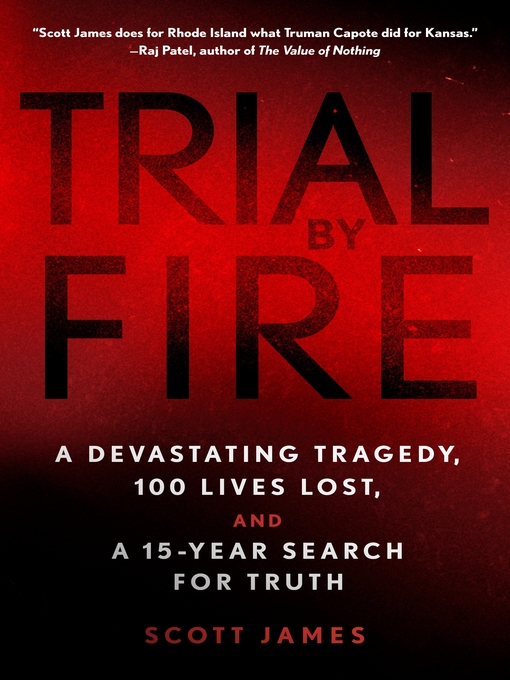In only 90 seconds, a fire in the Station nightclub killed 100 people and injured hundreds more. It would take nearly 20 years to find out why—and who was really at fault.
All it took for a hundred people to die during a show by the hair metal band Great White was a sudden burst from two giant sparklers that ignited the acoustical foam lining the Station nightclub. But who was at fault? And who would pay? This being Rhode Island, the two questions wouldn't necessarily have the same answer.
Within 24 hours the governor of Rhode Island and the local police commissioner were calling for criminal charges, although the investigation had barely begun, no real evidence had been gathered, and many of the victims hadn't been identified. Though many parties could be held responsible, fingers pointed quickly at the two brothers who owned the club. But were they really to blame?
Bestselling author and three-time Emmy Award-winning reporter Scott James investigates all the central figures, including the band's manager and lead singer, the fire inspector, the maker of the acoustical foam, as well as the brothers. Drawing on firsthand accounts, interviews with many involved, and court documents, James explores the rush to judgment about what happened that left the victims and their families, whose stories he also tells, desperate for justice.
Trial By Fire is the heart-wrenching story of the fire's aftermath because while the fire, one of America's deadliest, lasted fewer than two minutes, the search for the truth would take twenty years.
- Featured Magazines
- Let's Get Cooking!
- News, Politics, and Business
- Lifestyle Magazines
- Popular Magazines
- All Magazines
- See all magazines collections




